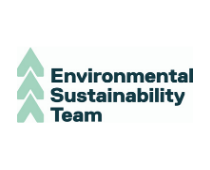Category Archives: Carbon, Energy & Water
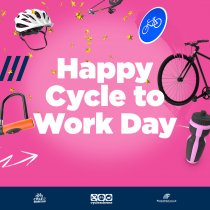
Cycle to Work Day – Thu 4th August 2022
Cycle to Work Day is the UK’s biggest cycling commuting event. Choosing to commute by cycling is a great way to improve fitness, reduce stress, and take positive action for our planet. You can find out all about the impacts

Cycle to Work Day – Thu 4th August 2022
Cycle to Work Day is the UK’s biggest cycling commuting event. Choosing to commute by cycling is a great way to improve fitness, reduce stress, and take positive action for our planet. You can find out all about the impacts

Go Green Salford 2022: round-up & resources
This year, Go Green Salford ran between February 28th – March 27th and explored four themes: Our Planet, Our Food, Our Resources and Our Nature. Throughout the month, we saw lots of engagement and support from our students, staff and

Go Green Salford 2022: round-up & resources
This year, Go Green Salford ran between February 28th – March 27th and explored four themes: Our Planet, Our Food, Our Resources and Our Nature. Throughout the month, we saw lots of engagement and support from our students, staff and
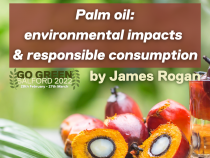
Palm Oil: environmental impacts & responsible consumption – by James Rogan
Palm oil is the most popular vegetable oil, used around the world in a range of food products including bread, chocolate, and margarine. As well as food, it is also present in some form in most cosmetics and cleaning products.

Palm Oil: environmental impacts & responsible consumption – by James Rogan
Palm oil is the most popular vegetable oil, used around the world in a range of food products including bread, chocolate, and margarine. As well as food, it is also present in some form in most cosmetics and cleaning products.
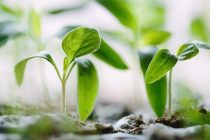
Salford Conversations Go Green – summary
Salford Conversations are interactive sessions for University of Salford colleagues, which give participants an opportunity to meet, discuss things that matter to them, create new connections, and learn from each other. They take place 3-4 times a year, with each

Salford Conversations Go Green – summary
Salford Conversations are interactive sessions for University of Salford colleagues, which give participants an opportunity to meet, discuss things that matter to them, create new connections, and learn from each other. They take place 3-4 times a year, with each
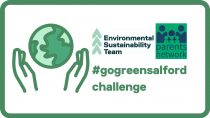
Go Green Salford 2021: summary and resources
In March, we ran a series of events for this year’s Go Green Salford. They followed four themes, one for each week, and aimed at raising awareness of environmental issues related to food, wildlife, waste, and climate. Throughout the month,

Go Green Salford 2021: summary and resources
In March, we ran a series of events for this year’s Go Green Salford. They followed four themes, one for each week, and aimed at raising awareness of environmental issues related to food, wildlife, waste, and climate. Throughout the month,
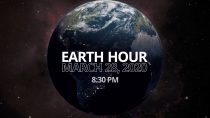
Earth Hour 2020
Emily Shipley, Environmental Communications & Engagement Assistant. Earth Hour is just one hour, annually, when the world can unite in its fight against climate change. The WWF have been running Earth Hour since its first lights-out event in Sydney, 2007.

Earth Hour 2020
Emily Shipley, Environmental Communications & Engagement Assistant. Earth Hour is just one hour, annually, when the world can unite in its fight against climate change. The WWF have been running Earth Hour since its first lights-out event in Sydney, 2007.

Global Recycling Day 2020
Guest blog by Emily Shipley, Environmental Communications and Engagement Assistant Graduate Intern. Using The Seventh Resource (recycled materials) saves over 700 million tonnes in CO2 emissions annually saves over 700 million tonnes in CO2 emissions annually, which is almost as

Global Recycling Day 2020
Guest blog by Emily Shipley, Environmental Communications and Engagement Assistant Graduate Intern. Using The Seventh Resource (recycled materials) saves over 700 million tonnes in CO2 emissions annually saves over 700 million tonnes in CO2 emissions annually, which is almost as
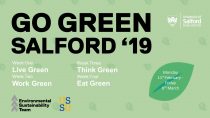
Go Green Salford 2019
From Monday 11th February – Friday 8th March a whole range of activities and events are planned for Go Green Salford. Week one: Live Green Week two: Work Green Week three: Think Green Week four: Eat Green Working in collaboration

Go Green Salford 2019
From Monday 11th February – Friday 8th March a whole range of activities and events are planned for Go Green Salford. Week one: Live Green Week two: Work Green Week three: Think Green Week four: Eat Green Working in collaboration
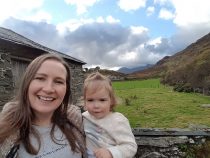
Meet our new Energy Management Officer
Nia Prys-Williams joined our team in September as our new Energy Management Officer, so we thought it was time to introduce Nia and ask a few questions. Welcome to the team! What will you be doing at the University? Energy

Meet our new Energy Management Officer
Nia Prys-Williams joined our team in September as our new Energy Management Officer, so we thought it was time to introduce Nia and ask a few questions. Welcome to the team! What will you be doing at the University? Energy

Joule House or Green House?
Building on practices embedded in the 2014-15 Green Impact, colleagues in Joule House are taking further steps to create a big impact. Once home to the Salfordian physicist James Joule Prescott, the Joule House team is committed to preserving its

Joule House or Green House?
Building on practices embedded in the 2014-15 Green Impact, colleagues in Joule House are taking further steps to create a big impact. Once home to the Salfordian physicist James Joule Prescott, the Joule House team is committed to preserving its
